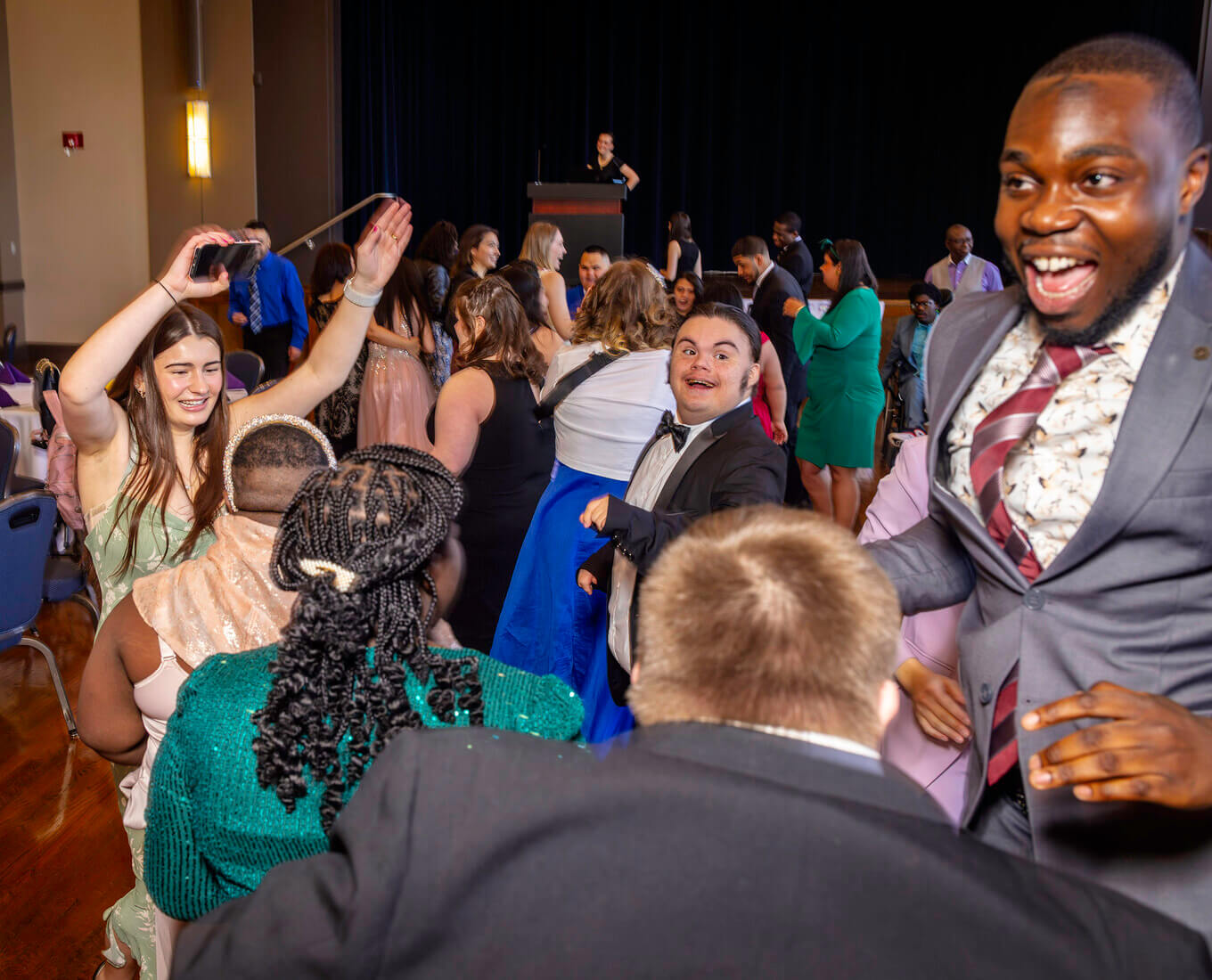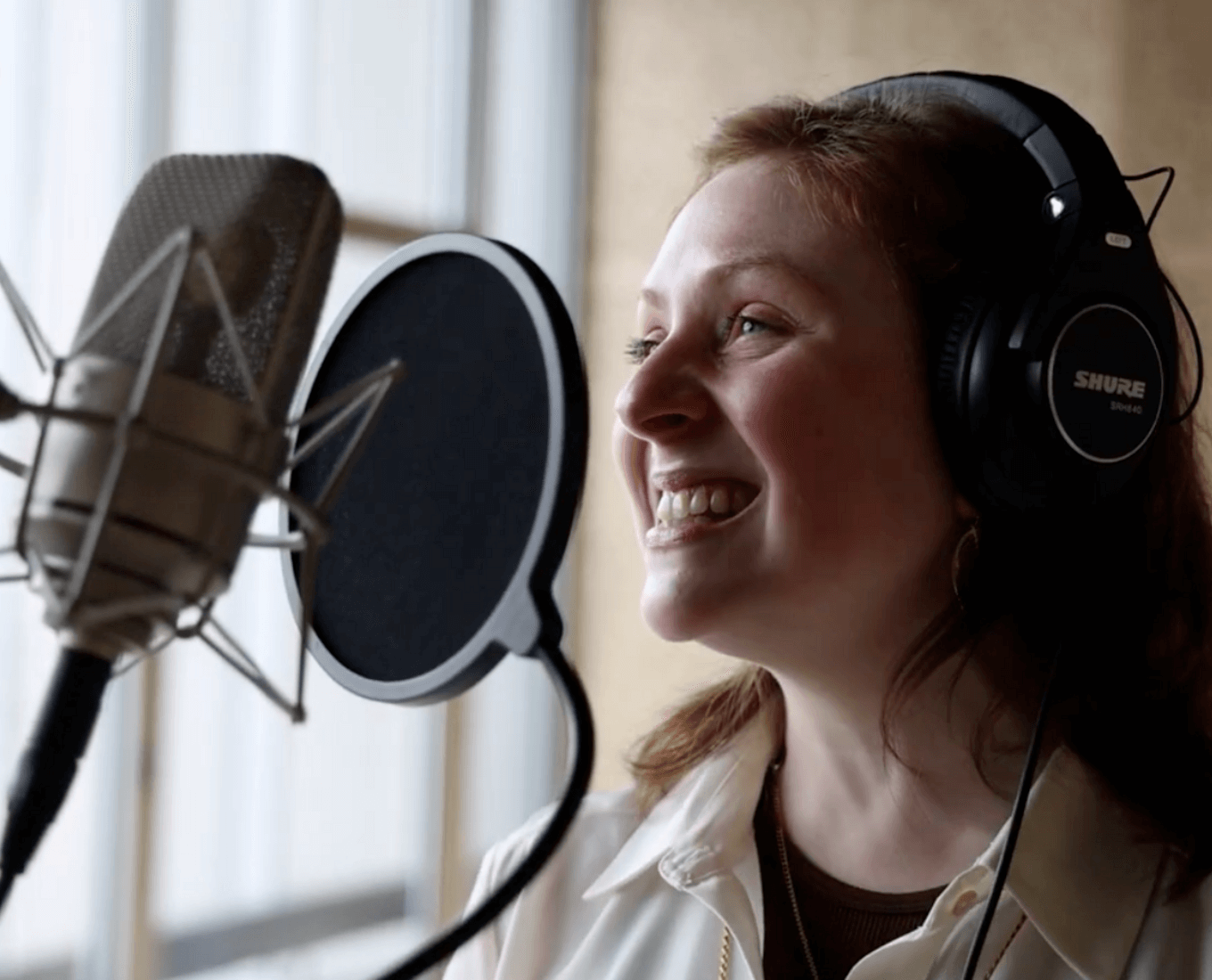Whether researching 18th-century British literature or economic fluctuations and asset pricing, Holy Cross faculty members are making significant, lasting impacts on their fields. Learn more about the four recently promoted faculty members from the departments of chemistry, English and economics and accounting.
L. Gaby Avila-Bront, chemistry
L. Gaby Avila-Bront, of the chemistry department, earned a B.A. in chemistry from Columbia University, and an M.S. and a Ph.D. in physical chemistry from the University of Chicago. Her research focuses on the study of surface-absorbate systems and their electronic and chemical relationships. She has been a member of the Holy Cross faculty since 2014.
What are you working on now?
My research seeks to understand the driving forces that determine how a mixture of different molecules bound to a surface forms a two-dimensional pattern. Surfaces modified with molecular patterns find many applications such as chemical and physical sensors. Although these systems are widely studied, there is currently no way to predict what two-dimensional patterns will form or what new properties of the surface will be observed when dissimilar molecules are deposited on a surface. The answers to these questions will provide scientists with unprecedented top-down control over surfaces modified with molecular patterns.
What emerging trends do you see on the horizon in your discipline?
In 2016, the Nobel Prize in chemistry was awarded "for the design and synthesis of molecular machines." Between this achievement and the need for research on the COVID-19 virus, I believe that the future of my discipline will involve the combination of molecular surface sensors and molecular machines to combat or test for viruses.
Melissa Schoenberger, English
Melissa Schoenberger, of the English department, earned a B.A. in English and Spanish literatures from the University of Rochester, and an M.A. and a Ph.D. in English literature from Boston University. Her research focuses on Restoration and 18th century British literature. She has been a member of the Holy Cross faculty since 2015.
What are you working on now?
I recently finished two essays, one on agricultural writing in England between 1650 and 1700, and another on a 20th century visual artist named Elizabeth Rivers, who used an 18th century poem by Christopher Smart in a fascinating series of engravings that she made during World War II. Now I'm working on a new book on long 18th century poems that, in different ways, try to make sense of challenging situations. One, "The Dunciad" by Alexander Pope, has a lot to say about the importance of thinking well and the dangers of refusing to do so; another, "The Art of Preserving Health" by the poet-physician John Armstrong, offers advice on how to practice healthy habits, and pushes back against what we would call "quackery" and other forms of medical disinformation. The literature of the 18th century often helps us consider the most urgent questions of our time, and I'm looking forward to connecting these poems and others to conversations we're having now.
What emerging trends do you see on the horizon in your discipline?
The field of 18th century studies has always fostered a broad range of topics, and every time I attend a conference or, these days, hop on a Zoom talk, I'm delighted by how this work continues to diversify and expand. In poetry studies, specifically, I've been interested in following both the geographical expansion of my colleagues' work and those projects that drill down into exciting new questions about poetic form, sound and linguistic history. The study of poetry gets wider and deeper every day, and the intensive attention it demands we pay to even minute aspects of language helps us better understand how and why people of various 18th century cultures wrote. The field is also very committed to pedagogy, and I'm inspired by colleagues near and far who engage their students in thinking critically about a period that set in motion both good and bad aspects of the world we're living in today.
Olena Staveley-O’Carroll, economics and accounting
Olena Staveley-O’Carroll, of the economics and accounting department, earned a B.A. in economics, mathematics and chemistry from Lakeland University, and an M.A. and a Ph.D. in economics from Georgetown University. Her research focuses on open economy macroeconomics, international capital movements and monetary policy. She has been a member of the Holy Cross faculty since 2015.
What are you working on now?
Broadly defined, my research explores topics in international monetary economics and finance. More narrowly, my interests have coalesced around the issue of international risk sharing. How are country-specific economic shocks (financial crises, natural disasters or shifts in economic policies) transmitted across national borders? What market mechanisms can help nations to share the burdens of their economic fluctuations with other countries? What is the optimal way in which governments (more specifically, central banks) can utilize these mechanisms to benefit their citizens? How should households structure their investment portfolios of internationally traded bonds and stocks to protect themselves from income and consumption volatility best? I believe finding answers to these questions can help governments (perhaps even in coordination with one another) to design policies that improve consumer welfare within and across nations.
What emerging trends do you see on the horizon in your discipline?
The Great Recession of 2007–2009 served to highlight a major weakness of the "mainstream" macroeconomic models used at the time: the lack of an explicitly and carefully modeled financial sector that links savers to borrowers. Answering this wake-up call, many researchers have been working on augmenting their models with financial intermediaries that not just simply transfer funds between lenders and borrowers but may have their own objectives (for example, profit maximization). In fact, one of my own research projects — still in very early stages — aims to introduce a multinational bank into a "standard" two-country model of consumer portfolio choice in order to examine the effect of national financial regulations (like the 2010 Dodd-Frank Act) on the choices the bank would make in transferring its clients’ money across borders and, thereby, on international capital flows.
Daniel Tortorice, economics and accounting
Daniel Tortorice, of the economics and accounting department, earned an S.B. in mathematics and economics from the Massachusetts Institute of Technology, and an A.M. and a Ph.D. in economics from Harvard University. His research focuses on expectation formation, productivity, economic fluctuations and asset pricing. He has been a member of the Holy Cross faculty since 2017.
What are you working on now?
With one of my colleagues in the economics department, we are trying to understand how the Federal Reserve can demonstrate to the public that they are insulated from political pressure. Central bank independence has been shown time and time again to be important for maintaining low levels of inflation and stable economic growth. Most governments, therefore, take a hands-off approach to monetary policy. But there are clear exceptions. We wanted to know how this political pressure shapes interest rate policy and what a central bank can do to maintain its independence. It's a fascinating project that has required us to build a mathematical model of expectations formation and optimal interest rate policy.
What emerging trends do you see on the horizon in your discipline?
Economics has been revolutionized over the past 20 years through the incorporation of psychological biases in our models. One place where these biases have made less of an impact is in our theories of how people form expectations about the future. We're moving in the direction of a more realistic, empirically grounded view of how people think about the future and the mistakes we all make when trying to forecast. Potentially, it will change the way we think about how stock prices are determined, why economies go through booms and recessions, and the fundamental determinant of inflation.
Written by Nicoleta Jordan for the Spring 2021 issue of Holy Cross Magazine.
About Holy Cross Magazine
Holy Cross Magazine (HCM) is the quarterly alumni publication of the College of the Holy Cross. The award-winning publication is mailed to alumni and friends of the College and includes intriguing profiles, make-you-think features, alumni news, exclusive photos and more. Visit magazine.holycross.edu/about to contact HCM, submit alumni class notes, milestones, or letters to the editor.



